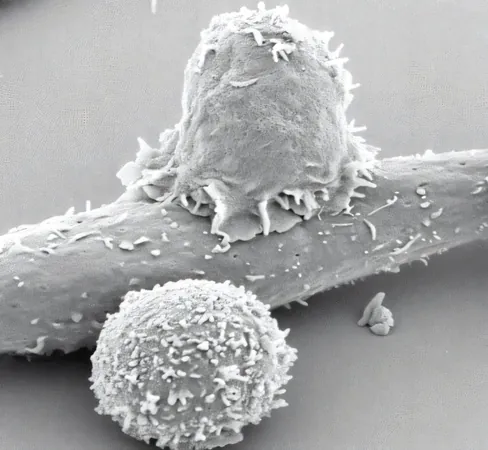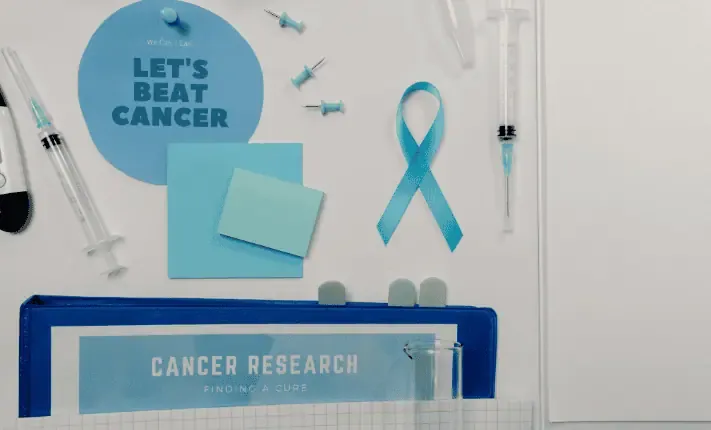
Breakthrough in Lab-Grown T Cells: A Game-Changer in Cancer Immunotherapy!
2025-01-28
Author: Yu
Unveiling a Revolutionary Technique
Researchers at the University of Pittsburgh have unveiled a groundbreaking technique to cultivate T cells in the lab that significantly enhances their longevity and efficacy against cancer cells, specifically in a mouse model of melanoma. This revolutionary approach may redefine the landscape of cancer immunotherapies, which typically involve extracting T cells from patients, expanding them in a laboratory setting, and later reinfusing them back into the body.
Study Insights and Leadership
The study, featured in the journal *Cell Metabolism*, is spearheaded by Dr. Greg Delgoffe, a professor in the Department of Immunology at the University of Pittsburgh's School of Medicine. He also directs the Tumor Microenvironment Center at UPMC Hillman Cancer Center. 'Traditionally, the way we grow T cells in the lab is horrendously inefficient,' Delgoffe remarked. 'While we can produce millions of T cells, a significant portion perishes before they can be reintroduced to the patient. Our research is focused on developing manufacturing processes that allow T cells to live longer and be more effective in therapeutic applications.'
Understanding Cell Therapy Procedures
The process of cell therapy hinges on the extraction of immune cells from patients, which are then expanded in a laboratory before being transferred back into the patient’s body. This therapy often features T cells—nature's soldiers in the fight against infections and cancers. Notable types include chimeric antigen receptor T cells (CAR-T), engineered to target cancer more efficiently, and tumor-infiltrating lymphocyte (TIL) therapy, which employs T cells that naturally attack tumors.
Addressing Critical Challenges
Recent findings point to a critical obstacle in the effectiveness of these therapies: the traditional method of culturing T cells uses growth media laden with glucose, leading to a dependence on this sugar. Consequently, when these cells are introduced back into a patient’s body, they find it challenging to utilize alternative energy sources, causing high mortality rates among the T cells.
A Transformative Solution
To mitigate this issue, the research team introduced dichloroacetate (DCA) into the growth medium, remarkably altering the metabolism of the T cells. This adjustment fosters an environment where T cells are less reliant on glucose and better suited to metabolize alternative energy sources abundant in the bloodstream.
Significant Outcomes and Future Implications
The results speak for themselves: T cells cultivated with DCA demonstrated a remarkable 5% retention in circulation nearly one year after infusion, a stark contrast to traditional methods where T cell detection significantly diminished within weeks. Furthermore, the DCA-treated T cells showed enhanced tumor control and improved survival rates in melanoma-afflicted animals compared to their glucose-dependent counterparts.
Expert Commentary on the Research
'By restricting access to specific energy sources during cultivation, we encouraged T cells to develop metabolic flexibility typically found in the body,' Delgoffe explained. 'This enhances their survivability and functional capacity when facing tumors.'
The Road Ahead in Cancer Immunotherapy
This innovative research not only opens doors for more effective cancer treatments but may also lead to improved outcomes for patients. As scientists continue to refine these methods, the dream of developing long-lasting and potent cancer immunotherapies draws closer to realization. Buckle up, as the battle against cancer could be set for a major transformation!





 Brasil (PT)
Brasil (PT)
 Canada (EN)
Canada (EN)
 Chile (ES)
Chile (ES)
 Česko (CS)
Česko (CS)
 대한민국 (KO)
대한민국 (KO)
 España (ES)
España (ES)
 France (FR)
France (FR)
 Hong Kong (EN)
Hong Kong (EN)
 Italia (IT)
Italia (IT)
 日本 (JA)
日本 (JA)
 Magyarország (HU)
Magyarország (HU)
 Norge (NO)
Norge (NO)
 Polska (PL)
Polska (PL)
 Schweiz (DE)
Schweiz (DE)
 Singapore (EN)
Singapore (EN)
 Sverige (SV)
Sverige (SV)
 Suomi (FI)
Suomi (FI)
 Türkiye (TR)
Türkiye (TR)